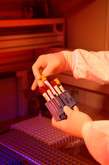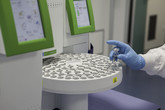Biosimilars/Research
|
Posted 06/11/2020
Increasing healthcare cost are forcing health authorities to look for low-cost innovations to help bend the cost curve. Biosimilars, a biotherapeutic product which is similar in terms of quality, safety and efficacy to an already licensed reference biological, are such an innovation [1]. Because biosimilars are often offered at lower prices, their use has been promoted all across the world. The initiating of biosimilars in bio-naïve patients is already commonplace in many countries. However, the transitioning from originator biological to its biosimilar for non-medical reasons is still debated. Different strategies about how and when to transition are formulated and applied.























